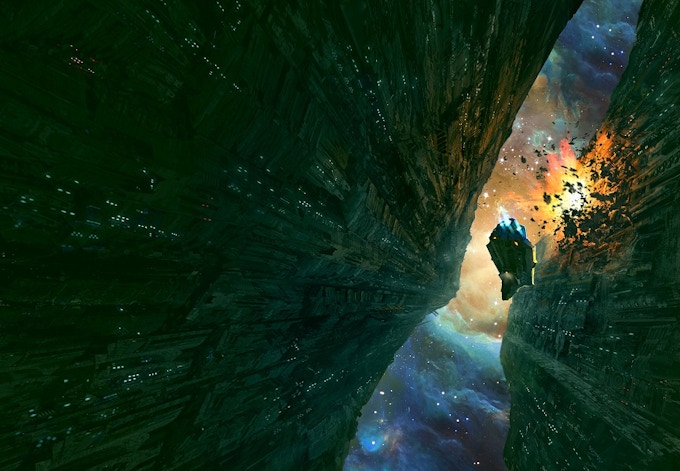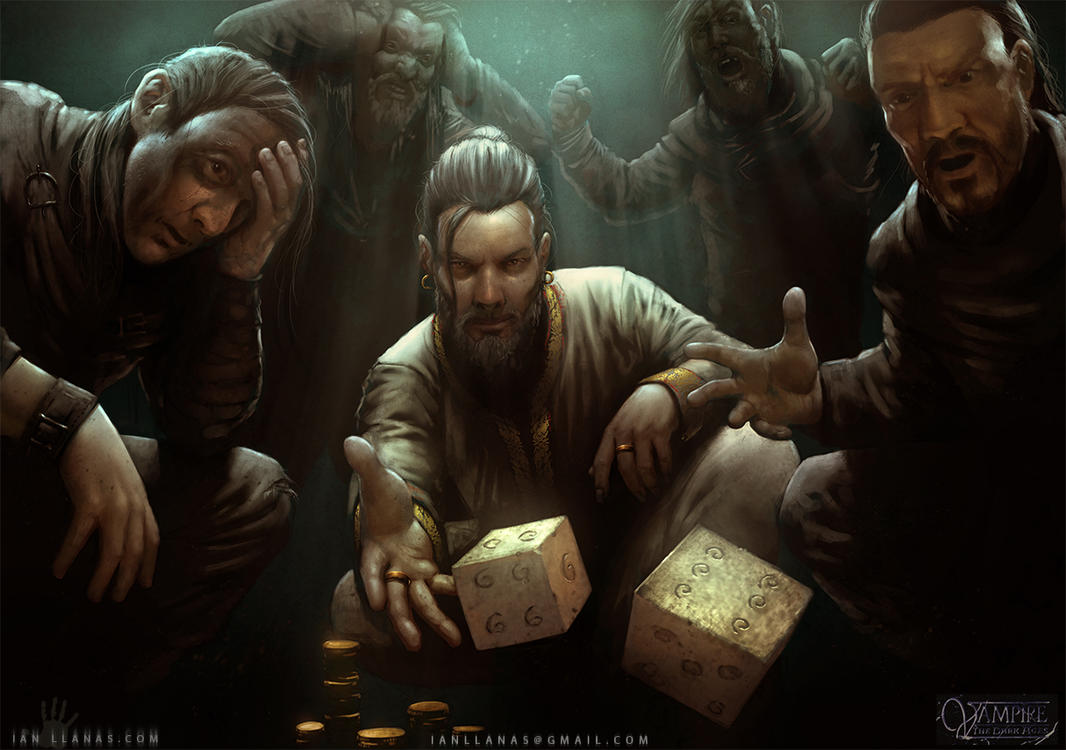I recently looked back into some old word docs that I had on writing from when I was just starting out. At the time, I had a few ideas that were mainly focused on my Of Orcs and Men series, originally called Battle of Blood and Treachery. I was struggling to find new ideas and different settings to write in and wanted to expand my craft. That led me to the idea of creating a story at random with the help of rolling dice.
I was of course influenced by role-playing games, but also by a book called "The Dice Man" by Luke Rhinehart. The novel is about a psychotherapist who casts dice in place of making decisions. It leads him down a perilous road, but the thrill of having to do what the dice tell him is too good to stop.
Fitting to rolling the dice, I found some great artwork by Ian Llanas. He has some more great stuff on his Deviant Art's page or his
website.
Back to my random novel idea.
I knew I wanted to write other things and of course, I had specific settings in mind, but I had no story ideas, no characters, no conflict. I was basically starting from scratch. So, I set up a plan for how to go about creating a story with semi-random elements, which ended up turning into the novel I am writing now.
First, I needed a world, a time and place: the setting. This is partially a genre selection, but since my interests have always been focused on fantasy, I made a list containing medieval settings with or without magic, supernatural and superhero settings, steampunk and urban fantasy. I had fifteen settings, some of them very specific like an "A Song of Ice and Fire" setting. Don't do that. I've written a lot since then and have learned a lot. You can of course use other known settings as inspiration, but you should really try to make the world your own.
For my novel, I ended up with a contemporary setting in which there are people who have special powers. I decided that these powers have been present throughout our history and were responsible for witch hunts in earlier centuries. The existence and reality of these powers were forgotten until they resurfaced within the last century and the people with these powers were no longer persecuted. This is a rough draft of what my setting looked like before I started writing.
After you have a setting you need a plot, at least that was my idea back then. Others might want characters first and go from there, but I had specific overall themes in mind and made a list of nine major plots the story could be focused around.
I originally rolled the dice and ended up with "Power" as my main theme. So I knew there was going to be at least one antagonist who wanted to become more powerful. Did he want more magical strength, money or more political power? I didn't know yet, but that brings us to the next bit: characters.
The first thing I had to decide was how many characters I would have. Here, I made a rookie mistake. The more point of view characters you have the harder it is to write, especially when you are a novice at writing. I knew that I would at least want four characters, but I was also really into "A Song of Ice and Fire" where it seems you can never have enough characters. So I decided twenty would be the maximum amount of characters that I should have, the dice would probably give me a lower amount anyway.
I rolled the dice and ended up with fourteen characters. That is way to many, especially for your first novel. However, the dice had made their decision and I followed without question. A few months after I started this project, I enrolled in a "Novel Writing" course and quickly came to the conclusion fourteen was too many. I cut it down to six and my tutor told me that would still be a lot for me to handle as the writer, but could also be too overwhelming for the reader. So, I cut it down to four.
The character creation was also randomized by giving them different personality traits from a list. They each got two traits, decided by the the roll of the dice. I did the same with their first and last names and their individual magical abilities, which I borrowed from a role-playing game I was playing at the time and then heavily modified to fit my setting.
Last, I gave each character (I still had fourteen at the time) a reason for being involved in the main plot. This list of reasons was a modified version of my plot/theme list and gave each character an individual quest or conflict.
So many of my characters randomly (by the luck of the dice) ended up being in debt or finding themselves in need of a lot of money quickly so that "Money" became a second theme of the story.
Things developed more naturally from there, without the help of rolling the dice. I found my antagonist who was power hungry and took advantage of people in need of money, forcing them to do his evil bidding to become more powerful, politically and financially. A group of other characters became my "heroes" who would combine forces to bring an end to the "villain."
This is a rough depiction of how my novel idea started. It helped me when I didn't know what it was that I wanted to write and I think a great story grew out of it.
For the fun of it, I think I'll have more posts on this method in the future where I explore what other stories could grow randomly from the wiles of the dice.

